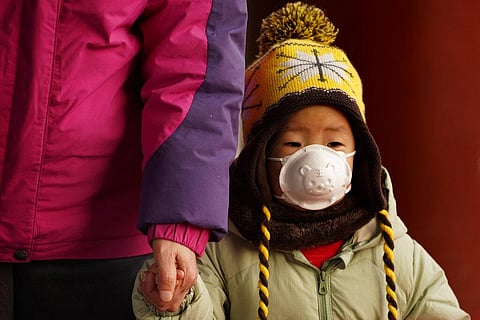Continued strict control measures needed to reduce new COVID-19 strains, scientists say
LONDON: While governments are negotiating a "precarious balance" between saving the economy and preventing COVID-19 fatalities, continued use of strict control measures should be adopted to reduce the evolution and spread of new COVID-19 variants, according to scientists.
As COVID-19 vaccines are being rolled out, the scientists said a threat to vaccine effectiveness comes from other emerging strains, both existing -- such as the UK, South Africa and Brazil variants -- as well as those yet to come.
The experts from the University of East Anglia (UEA), Earlham Institute in the UK and University of Minnesota in the US warn that stronger action now is the best way to mitigate more serious outcomes from such virulent strains later.
In an editorial pulished in the journal Virulence, the scientists said "continuing public health efforts to encourage vaccination as well as continued use of proper personal protective equipment (PPE), such as proper masking and maintaining safe social interactions, is of utmost importance,.
"Humanity is faced with a new reality. The faster we adapt, the better our long-term prospects.
We must stop the evolution and spread of more virulent virus strains now," said the xeperts, including Professors Cock van Oosterhout, Neil Hall, and Hinh Ly.
"We, therefore, support public health policies with strict control measures in order to protect our public health system, our individual wellbeing, and our future," they said.
The researchers highlighted that the roll-out of economic stimulus packages and related activities in many countries appear to have fuelled the rate of person-to-person transmission.
They noted that at the start of winter the population number of the virus continued from a much higher base than would otherwise have been the case.
"By not absolutely minimising the R number when we had the chance, we extended the pathogen transmission chains, providing more opportunity for it to mutate and evolve into more virulent variants," the researchers said.
They added that an increased virulence -- or higher R value -- can also result from the virus evolving the ability to infect people for longer.
The researchers warn that continued virus evolution in animal hosts, such as cats and mink, followed by transmission into susceptible human hosts, poses a significant long-term risk to public health.
They also suggest that the vaccination of certain domesticated animals might be important to halt further virus evolution and "spillback" events.

